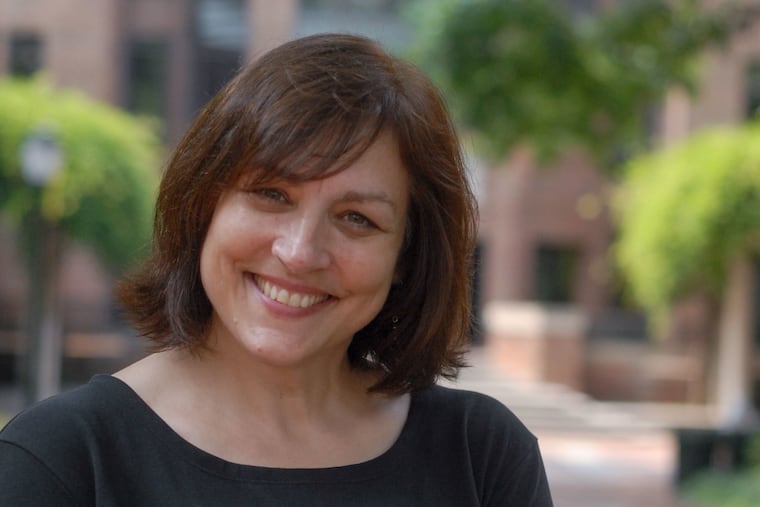Susan Haas, lecturer at Penn, who researched Radio Free Europe during the Cold War, dies at 63
Dr. Susan Haas, who once taught art history, met a refugee from the Czech Republic and decided to learn more about the Cold War in Eastern Europe. She earned a doctorate at Penn and taught there.

Susan Haas, a lecturer in the Annenberg School for Communication at the University of Pennsylvania, died suddenly on Sept. 25 of a heart attack. She was 63 and lived in the Cedar Park section of Philadelphia.
Dr. Haas was an expert in the history of the U.S.-funded Radio Free Europe and its effects on the Soviet satellite countries of Eastern Europe during the Cold War. The service bypassed government-controlled media there to provide independent news and promote Western values.
She also coordinated internships for the school, managing the Annenberg in Washington program for communication majors.
Dr. Haas joined Annenberg as a research and teaching fellow in 2004, the year she began working on her Ph.D. She became a lecturer in 2013 and earned her doctorate in communication in 2014.
To complete her dissertation, Dr. Haas traveled across Europe, recording interviews with more than 70 journalists who worked at Radio Free Europe between 1950 and 1995.
“Her commitment to the research project was impressive and inspiring,” Annenberg dean John L. Jackson Jr. said in an obituary the university published. “The work mattered to her, and she wrote about it in ways that made it clear why she was so passionate about understanding the practice of journalism in a decidedly global context.”
Dr. Haas’ interest in Eastern Europe grew after a friend introduced her to a refugee from the Czech Republic who had taken part in the 1968 Prague Spring democratic uprising, according to her daughter, Olivia Haas. Dr. Haas began interviewing him with the intent to write a novel. Soviet troops later invaded to put down the mass protests.
Born Susan Marie Dominach in Bethlehem, Pa., in 1957 to Therese and Ronald Dominach, Dr. Haas was the second of four children.
Her father’s work as a metallurgical engineer and executive at Bethlehem Steel and Union Carbide meant many transfers, and the family lived in Pennsylvania, New Jersey, and Illinois.
At Hood College in Maryland, Dr. Haas was a chemistry major, with plans to go into nursing. However, she transferred to Eastern Illinois University and changed her major to art history.
After college, she began working at the Lehigh County Historical Society in Allentown. She managed its gallery, worked on archives, and advised on historical restorations.
There, she met David Haas, a fine arts photographer, whom she married in 1987. They had two children. The marriage ended in divorce in 2001.
In Allentown, Dr. Haas wrote feminist columns for the Morning Call and taught as an adjunct professor of art history at Kutztown University. She also earned a master’s degree in nonprofit management from Pennsylvania State University.
In 2004, she and her children moved to Philadelphia as she pursued her doctorate..
Over the years, she also taught as an adjunct at other universities, including St. Joseph’s, Temple, and Rutgers.
In her spare time, Dr. Haas loved gardening, especially because she had an apartment in a corner house. “The entire side of the house had a patch of grass and weeds that she turned into a garden,” her daughter said. She grew tomatoes, strawberries, and wildflowers.
“Both my dad and mom took us out to experience the natural world and we used to go hiking at a place called Hawk Mountain,” Olivia Haas said.
She also said her mother made sure to take her children to see art and to attend the ballet and theater. “She really wanted my brother and I to be equipped to be creators in the world,” her daughter said.
Olivia Haas received an architecture degree from Penn and works for a tech company in user research and copywriting. Her brother, Francis, is a chef.
In addition to her daughter, son, and former husband, Dr. Haas is survived by her mother, two sisters, one brother, and other relatives and friends.
Dr. Haas had made it known that she did not want a memorial service or funeral. Donations in her memory may be made to a GoFundMe page to help her children settle her estate, the university said in its obituary. Any remaining funds will be used to help archive her dissertation interviews so they will be available to future scholars.